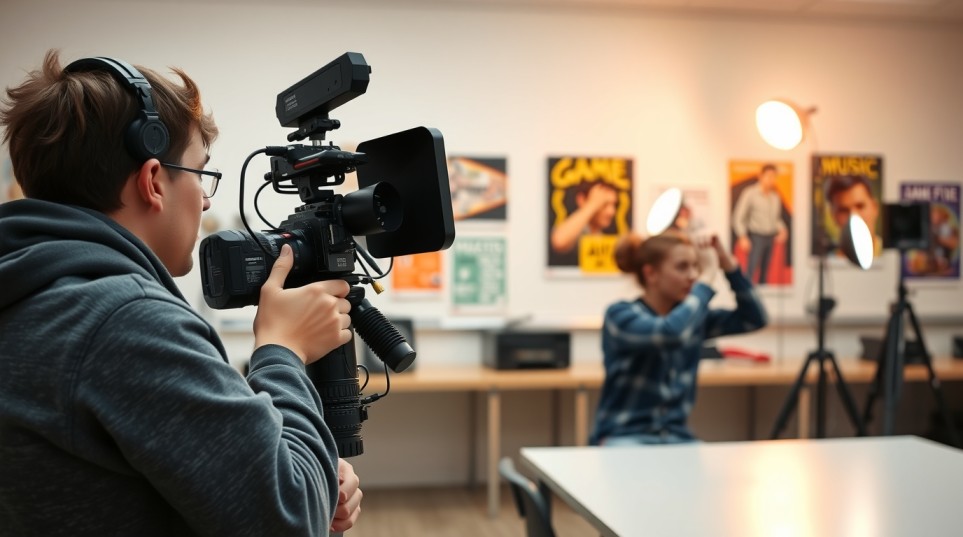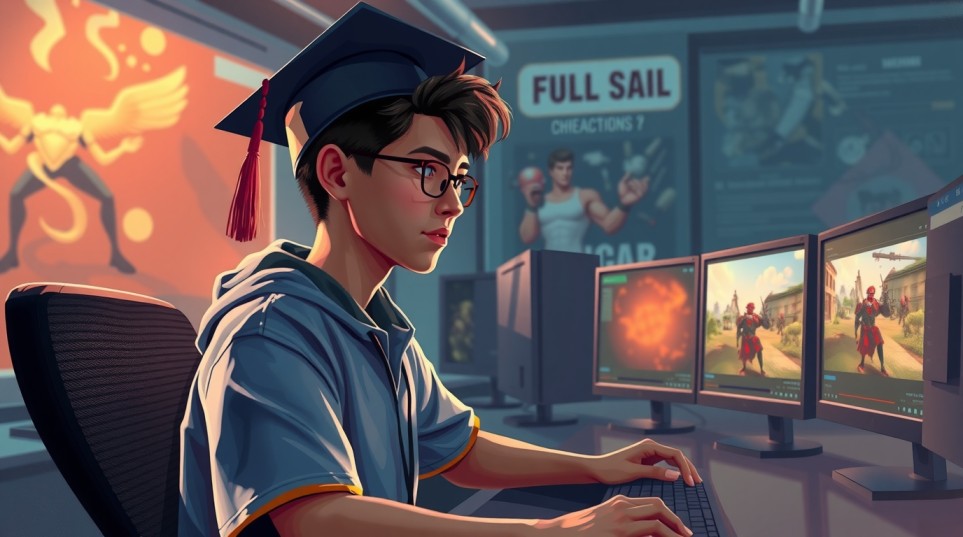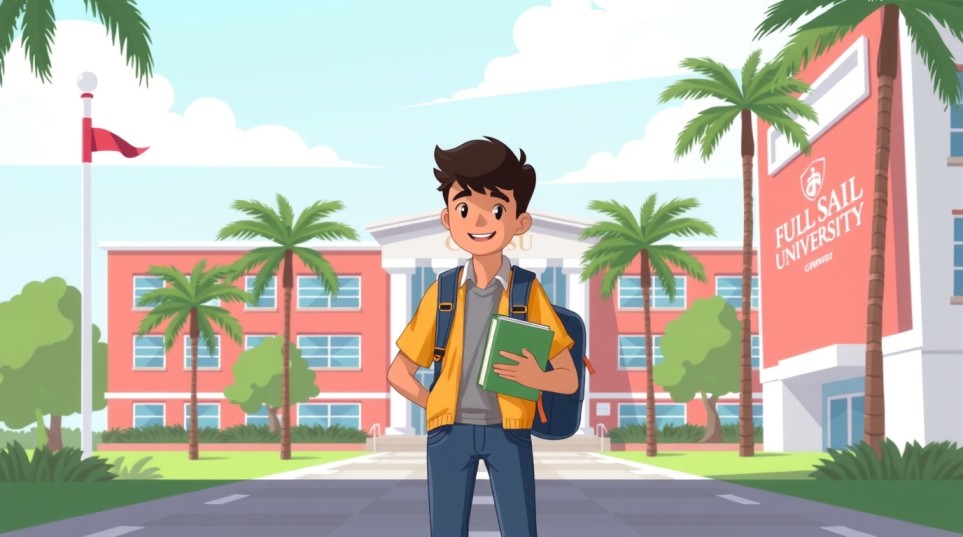Is Full Sail University Legit? An Honest Breakdown
Picking the right college can feel overwhelming. Beyond tuition and location, there’s a bigger question students often whisper to themselves: “Is this school even legit?”
Full Sail University comes up a lot in that conversation. Based in Winter Park, Florida, it has flashy ads, alumni who’ve worked on blockbuster films and games, and programs that finish in about half the time of a traditional degree. But is it trustworthy? Or just a well-marketed trap for creative kids with big dreams?
Let’s take a real look at what Full Sail is, what it does well, and where it might not measure up.
A Quick Look at Full Sail’s Story
Full Sail wasn’t always the massive media-and-tech school you see today. It started back in 1979 as a recording arts program. Over time, it added film, game design, animation, digital marketing, and more.
What makes it stand out is its accelerated model. Instead of a 16-week semester and long summers off, classes run year-round. That means you can finish a bachelor’s in about two years. For some, that’s a dream. For others, it feels like drinking out of a firehose.
Accreditation: Is It a Real School?
Here’s the thing people want answered straight away: yes, Full Sail is accredited. It’s recognized by the U.S. Department of Education through the Accrediting Commission of Career Schools and Colleges (ACCSC).
That matters because:
- You can apply for federal financial aid.
- Employers can verify your degree.
- It isn’t a “diploma mill” (those shady schools that hand out meaningless degrees).
One caveat: it’s nationally accredited, not regionally accredited. Translation: some other colleges might not accept transfer credits from Full Sail. If you plan to do grad school at a state university later, you’ll need to check if they’ll take those credits.

Where Full Sail Shines
Let’s be fair—there are definite perks.
???? Hands-On Training
If you’re into creative fields, you don’t just sit in a classroom talking about theory. You’re working with cameras, soundboards, editing suites, and industry software. It’s very project-driven.
⚡ Speed
For students itching to graduate and get to work, that two-year bachelor’s setup is appealing. No waiting around, no long summer breaks.
???? Connections
Full Sail promotes its alumni pretty heavily—and for good reason. Grads have touched everything from Grammy-winning albums to Marvel films to major video games. Having that network and school name behind you can help when breaking into creative industries.
Where It Gets Tricky
On the flip side, there are criticisms you’ll hear too.
???? The Cost
Programs aren’t cheap. A bachelor’s degree can easily run between \$40,000 and \$80,000. Yes, aid and scholarships exist, but you need to weigh whether the investment matches your career goals.
⏳ Intensity
The fast pace isn’t for everyone. You don’t get that traditional campus downtime. Burnout is a real risk if you’re not ready for the grind.
???? Transfer Credit Issues
Because it’s nationally accredited, transferring elsewhere later can be tough. It’s not impossible, but many regionally accredited schools may not take those credits.
???? Mixed Reviews
Alumni feedback is varied. Some will tell you Full Sail was the launchpad for their career. Others feel they paid a lot without getting the payoff they hoped for. Like most schools, your outcome is tied closely to what you put in.
Who Should Think About Full Sail?
Full Sail tends to work well for:
- People passionate about creative industries (film, gaming, design, music).
- Students who like hands-on learning instead of only lectures.
- Highly motivated learners who can handle a heavy workload.
It’s less ideal for:
- Students planning to transfer later.
- Those who want a slow, traditional college vibe.
- Anyone who sees college mainly as a low-cost stepping stone.
How Employers See It
This is important: in creative fields, employers usually care more about your portfolio and practical skills than the name on your diploma.
Full Sail helps here because the programs are project-based. You leave with work samples to show off. That said, networking and persistence still matter a ton. Full Sail gives you tools—but you’re still the one swinging the hammer.

FAQs About Full Sail University
1. Is Full Sail University legit? Yes. It’s accredited, recognized by the U.S. Department of Education, and has been around for decades.
2. Why do people question its legitimacy? Mostly because it’s a for-profit, nationally accredited school with higher tuition. People sometimes confuse that with being a scam, which it isn’t.
3. How fast can you finish a degree? Many bachelor’s programs can be done in about 20–24 months.
4. Does it cost more than state universities? Usually, yes. Full Sail is pricier, though financial aid can soften the blow.
5. Do graduates actually find jobs? Many do—especially in creative industries—but like anywhere, it depends on talent, networking, and effort.
6. Can I get financial aid? Yes. Pell Grants, federal loans, and scholarships are available.
7. What happens if I want grad school later? That’s where the national accreditation issue pops up. Some schools may not accept Full Sail credits for advanced degrees.
Final Verdict: Is Full Sail University Worth It?
Here’s the straight answer: Full Sail University is legit. It’s not a scam, and it has helped plenty of people launch careers in creative industries.
But legit doesn’t always equal right for you. The cost is high, the pace is demanding, and the accreditation may cause transfer headaches. If you’re dead set on working in film, gaming, or music and want a portfolio-heavy, fast-track education, it can be a strong choice. If you’re after a broad, flexible, traditional degree, you might want to look elsewhere.
Like most colleges, the school opens doors—but you’re the one who has to walk through them.
- Full Sail is accredited and recognized by the U.S. Department of Education.
- Degrees are legit, but transferring credits can be tough.
- Tuition is high, but programs are hands-on and accelerated.
- Best for students in creative/tech industries.
- Success depends more on your portfolio and hustle than the diploma itself.







